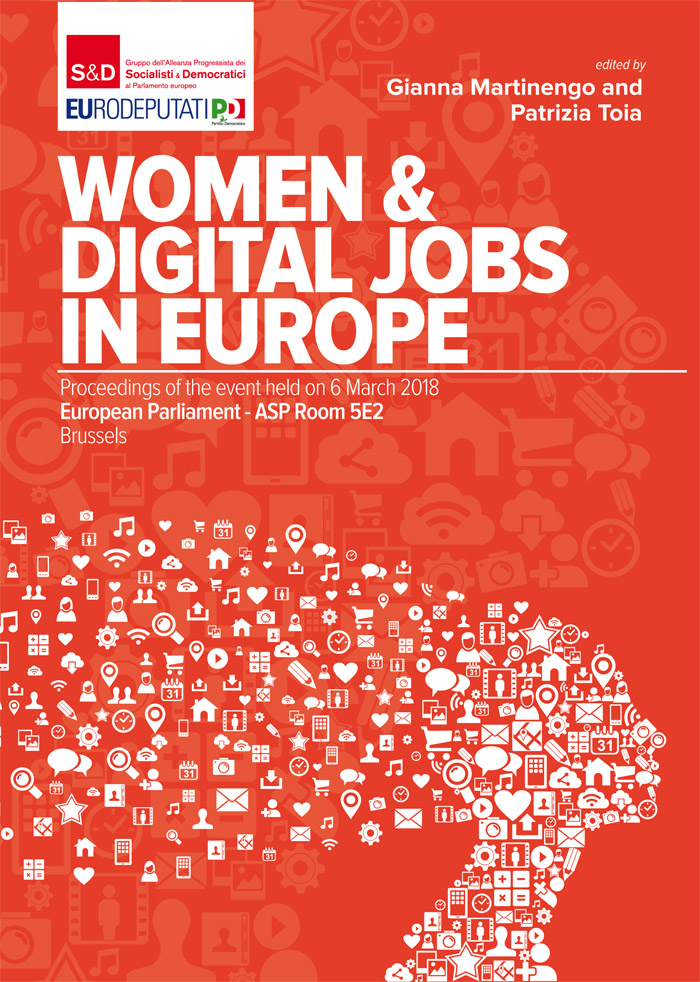Women & Digital Jobs in Europe (English version)
Few people know it but the fi rst computer programmer in the world dates back to the fi rst half of the nineteenth century. Her name was Ada Lovelace Byron, she was the daughter of the poet Lord Byron and was a brilliant mathematician. It was she who made the “analytical machine” programmable by laying the foundations of modern programming and pushing forward to prefi gure the concept of artifi cial intelligence. In 1979 the United States Department of Defense gave the name of ADA to an easy and effcient programming language.
Unfortunately, however, the history of digital technology has essentially been a story of men. In the computer revolution born in Silicon Valley there are very few women and even today the numbers on gender equality in engineering and ICT courses in universities and in the percentages of programmers or founders of digital start-ups are too unbalanced.
This is a trend that is changing but too slowly, given the centrality of information technology. In the last thirty years, digital has revolutionized every aspect of our lives, from economics to politics to the private sphere. Many studies indicate that in the near future technological change will make millions of jobs disappear, creating millions more, but only for those who will have the necessary skills.
In this revolution that is undermining the economic and social structures of the past, information technologies o
er enormous possibilities for women and for gender equality, but together with the possibility there are also many risks. Just think of telework, which on the one hand allows women to reconcile private and professional life like never before, but on the other hand risks becoming a new form of segregation in which working women are forced to stay at home. Or think of the social media, which if on the one hand are a form of expression and organization that allows to give voice to minorities or to those who have less power in society, but on the other hand they have become an instrument of sexist cyberbullying.
This is an important topic on which we in the European Parliament in Brussels wanted to confront ourselves with the protagonists and experts of the Italian and European digital world, to gather their ideas, suggestions and criticisms. The European Union has long set itself the goal of encouraging and driving technological change with tools such as the European Digital Single Market Strategy or the Horizon Europe research program. We Pd Euro MPs are convinced that in all these policies we must refl ect the goal of gender equality and in this legislature we have fought to include the attention to women in the EU laws relating to digital and innovation. The results can be seen in the possibilities o
ered to women researchers and entrepreneurs in the Horizon Europe program. But the situation is constantly evolving and attention must be paid to these issues.
SCARICA LA PUBBLICAZIONE A CURA DI PATRIZIA TOIA: "WOMEN & DIGITAL JOBS IN EUROPE" (ENGLISH VERSION)

SCARICA LA PUBBLICAZIONE A CURA DI PATRIZIA TOIA: "WOMEN & DIGITAL JOBS IN EUROPE" (ENGLISH VERSION)

- Visite: 2054
